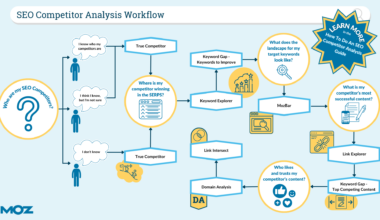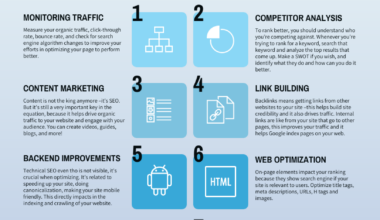Introduction to HTTPS and SEO
As a website owner, you might be wondering how to improve your website’s ranking on search engines. One important aspect to consider is the security of your website. This is where HTTPS comes in.
What is HTTPS?
HTTPS stands for Hypertext Transfer Protocol Secure. It is a secure version of the standard HTTP protocol used to transfer data between a web server and a web browser. HTTPS ensures that all data exchanged between the web server and the browser is encrypted, making it impossible for hackers to intercept and tamper with the data.
Benefits of HTTPS for SEO
There are several benefits of using HTTPS for SEO. Firstly, Google has confirmed that HTTPS is a ranking factor for search engine results pages (SERPs). Websites that use HTTPS are favored over non-secure websites. Secondly, HTTPS provides a secure connection, which makes users feel safe when browsing your website. This can lead to increased traffic, lower bounce rates, and higher engagement rates. Lastly, HTTPS can improve the speed of your website, as modern web browsers can load HTTPS pages faster than non-secure ones.
How HTTPS affects website ranking
As mentioned earlier, HTTPS is a ranking factor for search engines. This means that websites that use HTTPS have a better chance of ranking higher on search engine result pages (SERPs) than non-secure websites. HTTPS provides a secure connection, which means that users are more likely to trust your website and spend more time browsing it. This can lead to increased traffic, lower bounce rates, and higher engagement rates, which can further boost your website’s ranking.
Implementing HTTPS on your website
Implementing HTTPS on your website is a straightforward process. Firstly, you need to obtain an SSL certificate from a trusted certificate authority. This certificate will ensure that your website is secure, and your users’ data is encrypted. Secondly, you need to configure your website to use HTTPS, which involves updating your website’s URLs, updating your website’s code, and redirecting HTTP traffic to HTTPS. Lastly, you need to test your website to ensure that everything is working as expected.
Final Thought: The Importance of HTTPS for SEO
In conclusion, HTTPS is an essential factor for SEO. Using HTTPS on your website can improve your website’s ranking, increase traffic, lower bounce rates, and improve engagement rates. Implementing HTTPS on your website is a straightforward process, and it is well worth the effort to ensure that your website is secure and trusted by your users.
What is HTTPS?
HTTPS is a secure version of the standard HTTP protocol used to transfer data between a web server and a web browser. It uses encryption to protect the data exchanged between the server and the browser. When a website uses HTTPS, it means that the data transmitted between the two is encrypted, making it difficult for hackers to intercept and read the data.
The encryption used in HTTPS is achieved through the use of SSL/TLS certificates. SSL (Secure Sockets Layer) and TLS (Transport Layer Security) are encryption protocols that provide secure communication over the internet. These certificates verify the identity of the website and establish a secure connection between the server and the browser.
When a user visits a website using HTTPS, their browser checks the SSL/TLS certificate to ensure that it is valid and issued by a trusted certificate authority. If the certificate is valid, the browser establishes a secure connection with the server and encrypts all data exchanged between them. This ensures that any sensitive data, such as login credentials, credit card numbers, and personal information, is protected from prying eyes.
HTTPS is becoming increasingly important for websites, not just for security reasons, but also for SEO. With Google making HTTPS a ranking factor in its search algorithm, it’s essential to ensure that your website is secured with HTTPS. Using HTTPS on your website can improve your website’s ranking, increase traffic, and improve engagement rates.
In the next section, we will discuss the benefits of using HTTPS for SEO in more detail.
Benefits of HTTPS for SEO
Using HTTPS on your website has several benefits for SEO. Let’s take a closer look at them:
1. Improved Website Ranking:
Google has confirmed that using HTTPS is a ranking factor for search engine results pages (SERPs). Websites that use HTTPS have a better chance of ranking higher on SERPs than non-secure websites. In fact, a study conducted by Moz found that HTTPS websites have a 4.27% higher search engine ranking than HTTP sites.
2. Secure Connection:
HTTPS provides a secure connection between the server and browser, which makes users feel safe when browsing your website. This can lead to increased traffic, lower bounce rates, and higher engagement rates. When users feel safe on your website, they are more likely to trust your brand and become loyal customers.
3. Improved Page Load Speed:
Another benefit of using HTTPS is that it can improve the speed of your website. Modern web browsers can load HTTPS pages faster than non-secure ones, which can lead to a better user experience. A faster website can also lead to lower bounce rates and increased engagement rates.
4. Protection Against Cyber Attacks:
Using HTTPS can protect your website and users from cyber attacks. Hackers often target non-secure websites to steal sensitive data, such as credit card numbers, passwords, and personal information. By using HTTPS, you can encrypt all data exchanged between the server and browser, making it difficult for hackers to intercept and read the data.
5. Better Analytics Data:
Using HTTPS can provide better analytics data for your website. When you use HTTPS, all traffic to your website is encrypted, which means that referral data is also encrypted. This can lead to more accurate data in your analytics reports, which can help you make better decisions for your website.
In the next section, we will discuss how HTTPS affects website ranking in more detail.
How HTTPS affects website ranking
As mentioned earlier, using HTTPS on your website can have a positive impact on your website’s ranking. Here are some of the ways HTTPS affects your website’s ranking:
1. Trust and Security:
When a website uses HTTPS, it sends a signal to search engines that it is a trusted and secure website. This is because HTTPS ensures that all data exchanged between the server and browser is encrypted, which makes it difficult for hackers to intercept and tamper with the data. As a result, search engines favor HTTPS websites, which can lead to higher rankings.
2. Improved User Experience:
HTTPS can improve the user experience of your website, which can also lead to higher rankings. This is because HTTPS provides a secure connection between the server and browser, which makes users feel safe when browsing your website. When users feel safe on your website, they are more likely to spend more time on your website, which can lead to increased engagement and lower bounce rates.
3. Mobile Friendliness:
With the rise of mobile devices, search engines have placed a greater emphasis on mobile-friendly websites. Using HTTPS can help your website become more mobile-friendly, which can lead to higher rankings. This is because HTTPS can improve the speed of your website, which is essential for mobile users who often have slower internet connections.
4. Link Signals:
HTTPS can also have a positive impact on your website’s link signals, which can lead to higher rankings. When you use HTTPS, all links to your website are encrypted, which means that search engines can better understand the link signals to your website. This can lead to higher rankings for your website.
Overall, using HTTPS on your website can have a significant impact on your website’s ranking. It can improve trust and security, improve the user experience, make your website more mobile-friendly, and improve your link signals. In the next section, we will discuss how to implement HTTPS on your website.
Implementing HTTPS on your website
Implementing HTTPS on your website is a straightforward process that can be accomplished in a few simple steps.
1. Obtain an SSL/TLS Certificate:
The first step in implementing HTTPS is to obtain an SSL/TLS certificate from a trusted certificate authority. There are many certificate authorities available, such as Let’s Encrypt, Comodo, and DigiCert. You can choose the one that best suits your needs and budget.
2. Configure Your Website to Use HTTPS:
Once you have obtained an SSL/TLS certificate, you need to configure your website to use HTTPS. This involves updating your website’s URLs, updating your website’s code, and redirecting HTTP traffic to HTTPS.
You can use a plugin or a script to automate the process or do it manually. If you are using a CMS like WordPress, you can use a plugin like Really Simple SSL to automate the process.
If you are using a custom website, you will need to update your website’s code to use HTTPS. This involves updating all URLs in your website’s code, including links to images, scripts, and stylesheets.
You will also need to redirect all HTTP traffic to HTTPS. This can be done by adding a redirect rule to your website’s .htaccess file.
3. Test Your Website:
Once you have configured your website to use HTTPS, you need to test your website to ensure that everything is working as expected. You can use tools like SSL Server Test or Qualys SSL Labs to test your SSL/TLS certificate and ensure that it is configured correctly.
You should also test your website’s functionality, including forms, logins, and shopping carts, to ensure that everything is working as expected.
In conclusion, implementing HTTPS on your website is a crucial step in improving your website’s ranking and ensuring the security of your users’ data. It is a straightforward process that can be accomplished in a few simple steps, including obtaining an SSL/TLS certificate, configuring your website to use HTTPS, and testing your website to ensure that everything is working as expected.
Final Thought: The Importance of HTTPS for SEO
In today’s digital age, website security is of utmost importance. With the increasing number of cyber attacks and data breaches, users are becoming more conscious of their online security. As a website owner, it is your responsibility to ensure that your users’ data is safe and secure. This is where HTTPS comes in.
Using HTTPS on your website not only ensures the security of your users’ data but also has a positive impact on your website’s ranking. Google has confirmed that HTTPS is a ranking factor for search engine results pages (SERPs), which means that websites that use HTTPS are favored over non-secure websites.
In addition to improving your website’s ranking, using HTTPS can also lead to increased traffic, lower bounce rates, and higher engagement rates. When users feel safe on your website, they are more likely to trust your brand and become loyal customers.
Implementing HTTPS on your website may seem like a daunting task, but it is a straightforward process that can be accomplished in a few simple steps. By obtaining an SSL/TLS certificate, configuring your website to use HTTPS, and testing your website, you can ensure that your website is secure and trusted by your users.
In conclusion, using HTTPS on your website is not just beneficial for security but also for SEO. It is a crucial step in improving your website’s ranking, increasing traffic, and improving engagement rates. As a website owner, it is essential to prioritize the security of your users’ data and implement HTTPS on your website.






















